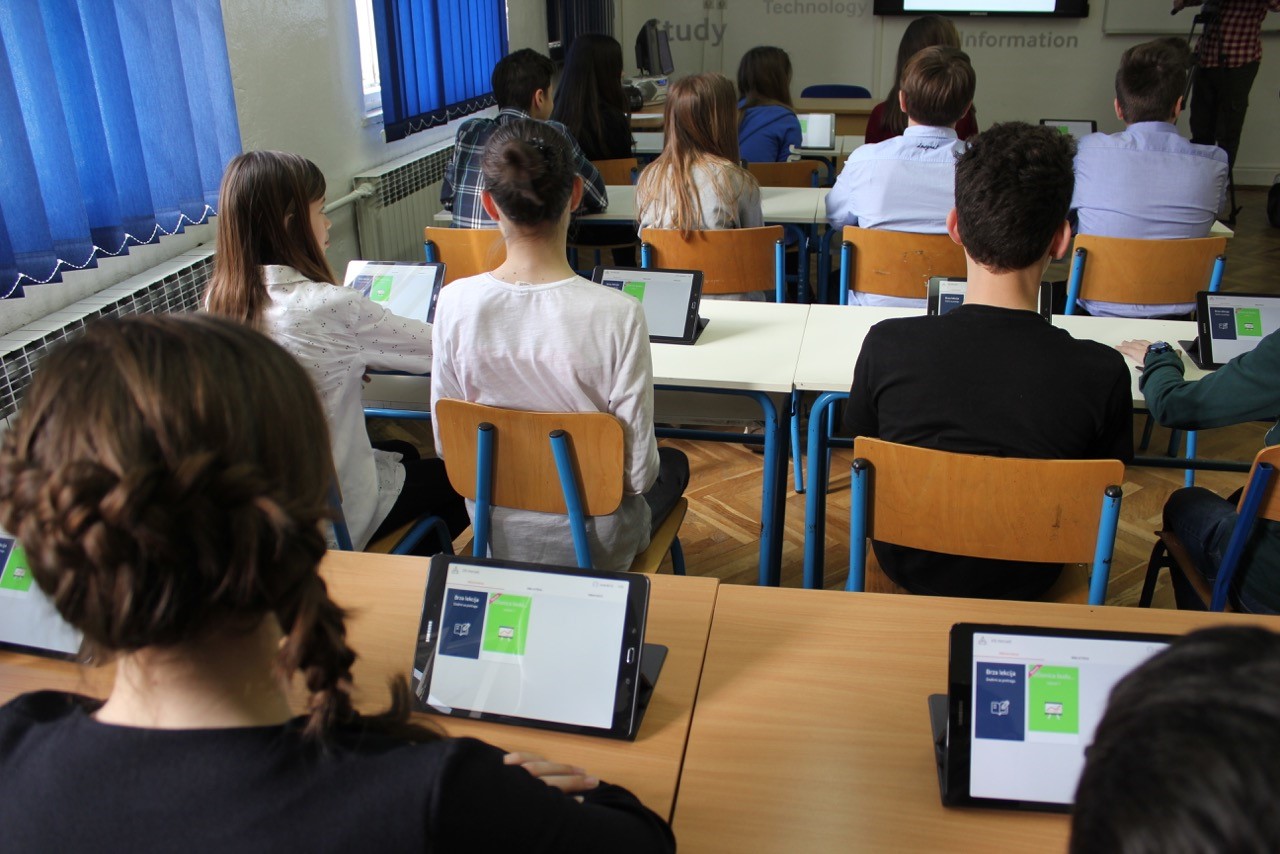Words: Anja Korda, CARNET
The “e-Schools: Development of the System of Digitally Mature Schools” programme is one of the largest investments in education in Croatian history, which is in line with major national strategies related to education along with national curriculum reform. Worth more than €200 million and financed through the European Regional Development Fund, European Social Fund and the state budget, the programme includes all public schools in Croatia, thus bringing equal opportunities to all students in the country.
The overall objective of the e-Schools programme is to contribute to the empowerment of the primary and
secondary education system capacities while enabling students to become more active participants of the labour
market, pursue further education and engage in lifelong learning. e-Schools are envisioned as digitally mature schools connected to ultra-fast internet, highly equipped with ICT, with digitalised teaching, learning and administrative processes. In such schools, digitally competent teachers and students use ICT in their everyday work, together with educational applications and digital education resources.
The advantages of such a systematic and comprehensive approach were demonstrated in the pilot phase of the programme, which ended in 2018. The pilot project was implemented in 10% of Croatian primary and secondary schools, resulting in increased digital maturity of schools and increased motivation among teachers and students.
In the second phase of the programme, by the end of 2022, all schools will be equipped with wired and wireless local area networks and the corresponding active network equipment. Following the network, selected classrooms in each school will be equipped with modern ICT devices for teaching and teachers will receive a device to help them prepare and implement modern educational practices in their classrooms.
Also, to further facilitate and encourage the use of ICT, suitable digital educational content, other e-content and e-services are being developed. With this in mind, the crucial part of the e-Schools programme is the support and training of teachers and school staff, because only digitally competent teachers will be able to use and further explore the benefits of the use of ICT in education. Furthermore, activities dealing with security aspects of the ICT implementation will also be implemented.
Finally, several types of research and evaluations, aiming to explore further the effects of the use of ICT in education will be conducted, providing valuable input for future national and international projects.






